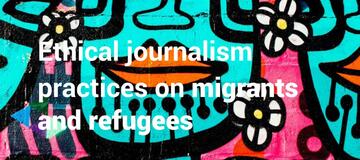
Related contents
Online Module: Media Against ‘Hate Speech’Online Module: Inclusion through media
Online Module: How to counter hate speech and manage an online community
The migration and refugee crisis in Europe not only presents a humanitarian crisis that demands political and social attentions; it also demands the media to act responsibly by reporting in a fair, accurate and accountable manner. However, this is not always easy. Sometimes, it can be a real challenge for journalists because it requires them to understand the different cultures, ethnicities and the complicated political backgrounds. Being objective in such an emotionally and politically charged subject is not easy. Every decision they made during the editorial processes, from choosing the angles, sources to the words they use, will shape the story differently.
Facing such a challenge, journalists need to be equipped with tools both emotionally and professionally in order to cover the story as accurate as possible without prejudice or furthering hatred on particular groups in society. The ‘‘Media Against Hate’’ highlighted the need to develop comprehensive training programmes for journalists and media organisations. As part of the project, the Journalism Practice Module on covering migrants and refugees was developed by the EFJ to share existing good practices and encourage ethical reporting.
Tags: Ethics of journalism Journalism education Media freedom Hate speechThe content of this article can be used according to the terms of Creative Commons: Attribution-NonCommercial 4.0 International (CC BY-NC 4.0) . To do so use the the wording "this article was originally published on the Resource Centre on Media Freedom in Europe" including a direct active link to the original article page.

